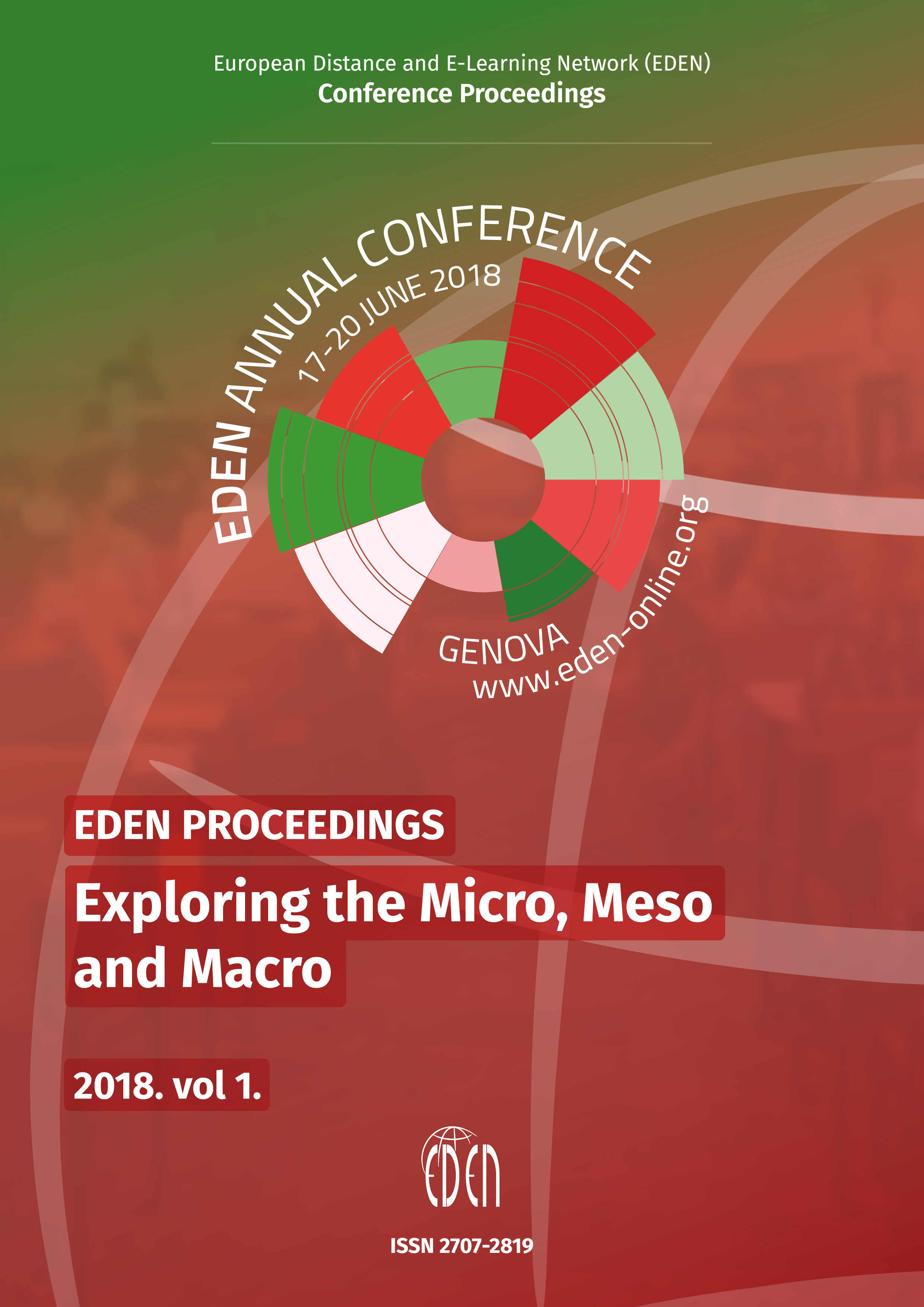Individual and Institutional Support in ODL: How The Macro May Benefit from the Micro
Individual and Institutional Support in ODL: How The Macro May Benefit from the Micro
Author(s): Antonis Lionarakis, Anna Apostolidou, Antonia-Maria Hartofylaka, Maria Niari, Kyriaki SfakiotakiSubject(s): Social Sciences, Education, Higher Education
Published by: European Distance and E-Learning Network
Keywords: E-learning policies; Lifelong learning; Tutoring and student support
Summary/Abstract: Educational support for students in the field of open and distance education is a multifacetedand decisive parameter for enhancing and promoting student engagement and academicprogress. This is a conclusion that draws on a number of research findings on the need foreffective support for students to make the most of their learning and social backgrounds in adiverse learning and participatory process. Given the growing demand for new skills acquisitionand lifelong learning, online education welcomes diverse categories of learners withdifferentiated needs and levels of online participation. The purpose of this article is tosummarize the context of the ongoing research effort of the PENER-16 program of the HellenicOpen University (EAP), emphasizing the need to develop an integrated student support systemin the learning community of a distance learning tertiary institution. The paper holds thatsupport services in higher education ought to be organized on three distinct levels, inaccordance with the focus lens of the conference, so as to allow for wider participation, copingwith new learning solutions, and better provision of skills currently demanded by growingeconomies. More specifically, (a) on the individual level, support should include needs’diagnostic tests, provide academic skills and offer ongoing psychological support, tailored tothe study phase that students face; (b) on the institutional level, support might provideassistance in administrative issues, promote collaborative and community-building skills,extra-curriculum activities that promote digital literacy and enhancement of communicationmedia use; and (c) equally important, on the societal level, support services should consideroffering recourses that enhance the cultural sensitivity of learners and institutional agents thateliminate learning disparities and encourage individual and collective learning. As these levelsare interrelated in the learning and teaching process, they should also be delivered in terms ofsupport via a holistic system that cultivates cross-sectional and cross-cultural skills, places theindividual and the university in the current socio-economic and marketing context and followthe main principles of online instructional design.
Journal: European Distance and E-Learning Network (EDEN) Conference Proceedings
- Issue Year: 2018
- Issue No: 1
- Page Range: 38-46
- Page Count: 9
- Language: English

